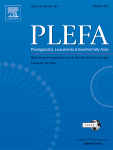 We will be having our annual pre-Christmas workout in the library on Monday....our stocktake day. We will be closed all day but will be open in the evening from 17:00 until 19:00.
We will be having our annual pre-Christmas workout in the library on Monday....our stocktake day. We will be closed all day but will be open in the evening from 17:00 until 19:00.We are then closed over Christmas and New Year, re-opening on Thursday Jan 2nd so we wish you all a Merry Christmas & a Happy New Year. If you need to return items when we are closed then a book-drop box is available outside the library.
Things about cell genomics...
There is a SITraN external seminar on January 10th 12:00 - 13:00 in Meeting rooms B02/B03, SITraN, 385a Glossop Road. The speaker is John Marioni - Cancer Research Uk, Cambridge / European Bioinformatics Institute , University of Cambridge
 Title: "Using single cell genomics to understand cell fate decisions"
Title: "Using single cell genomics to understand cell fate decisions"With recent technological developments it has become possible to characterise a single cell’s genome, epigenome, transcriptome and proteome. However, to take advantage of such data it is critical that appropriate computational methods are applied and developed. In this presentation, I will describe some of the computational challenges and the solutions we have developed, focusing particularly on applications in the context of cell fate decisions in early mammalian development.
Things about neonates...
 The Healthcare Quality Improvement Partnership has published National Neonatal Audit Programme 2019: annual report on 2018 data. The National Neonatal Audit Programme (NNAP) reports on key measures of the care provided to babies in 181 neonatal services across England, Wales, Scotland and the Isle of Man. Included in this annual report for the first time is network level reporting of mortality until discharge from the neonatal unit, and adherence to neonatal nurse staffing standards.
The Healthcare Quality Improvement Partnership has published National Neonatal Audit Programme 2019: annual report on 2018 data. The National Neonatal Audit Programme (NNAP) reports on key measures of the care provided to babies in 181 neonatal services across England, Wales, Scotland and the Isle of Man. Included in this annual report for the first time is network level reporting of mortality until discharge from the neonatal unit, and adherence to neonatal nurse staffing standards.and also...
 NHS England has published Implementing the recommendations of the Neonatal Critical Care Transformation Review. This action plan to implement the recommendations of the Neonatal Critical Care Transformation Review sets out how the NHS will further improve neonatal care with the support of funding set out in the NHS Long Term Plan.
NHS England has published Implementing the recommendations of the Neonatal Critical Care Transformation Review. This action plan to implement the recommendations of the Neonatal Critical Care Transformation Review sets out how the NHS will further improve neonatal care with the support of funding set out in the NHS Long Term Plan.Things about Paediatric Intensive Care...
 The Healthcare Quality Improvement Partnership has published Paediatric Intensive Care Audit Network: Annual Report 2019. This is the sixteenth annual PICANet clinical audit report summarising paediatric critical care that took place in the United Kingdom and Republic of Ireland between 2016 and 2018. It provides data on five key metrics: case ascertainment; retrieval mobilisation times; number of qualified nurses per bed; emergency readmissions within 48 hours and mortality in PICU.
The Healthcare Quality Improvement Partnership has published Paediatric Intensive Care Audit Network: Annual Report 2019. This is the sixteenth annual PICANet clinical audit report summarising paediatric critical care that took place in the United Kingdom and Republic of Ireland between 2016 and 2018. It provides data on five key metrics: case ascertainment; retrieval mobilisation times; number of qualified nurses per bed; emergency readmissions within 48 hours and mortality in PICU. |
| Image by Hans Braxmeier from Pixabay |
If you want to catch some Christmas carol singing in Sheffield over the next few days then this search should bring you plenty of choice.
Things to eat...
 If you are catering for vegetarians (or anyone else!) over the Christmas period there are some fantastic recipes here like this savoury spiced baklava.
If you are catering for vegetarians (or anyone else!) over the Christmas period there are some fantastic recipes here like this savoury spiced baklava.










































